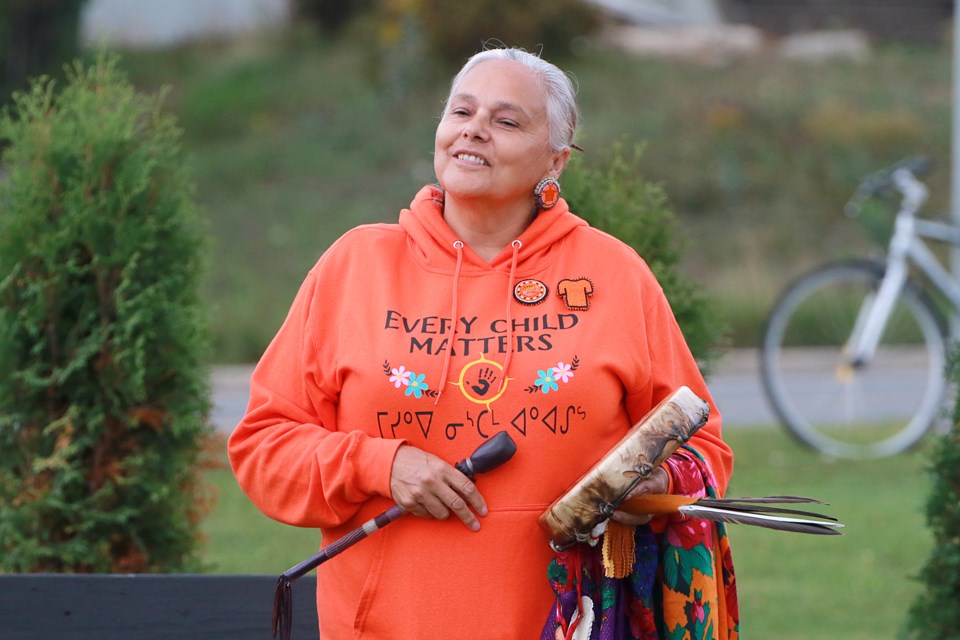THUNDER BAY – As a child, Fred Thomas spent 10 years in the residential school system, ripped from his family and forced to abandon his culture and heritage.
It was so bad, he forgot who his mother was.
Today, 29 years after she died, the Lac Seul First Nation elder is still reeling from the impact of his time at residential school, a term he believes is used to soften the actualities of what went on behind closed doors.
Thomas spent five years at McIntosh Residential School and five more at Pelican Lake, and on Saturday said he’s encouraged by work being done toward truth and reconciliation, much of the effort arriving in the aftermath of the discovery of thousands of bodies buried on former residential school grounds across the nation.
Saturday marked the third annual National Truth and Reconciliation Day in Canada, and Thomas was a featured speaker at a city-sponsored event at Hillcrest Park, the crowd ringing the half-masted Truth and Reconciliation flag erected to honour survivors and those who never came home.
“(It’s a chance) for the dominant group to really understand the issue of how our First Nations were treated as children, and also all the missing children,” Thomas said.
“It’s very fresh yet. We’ve still got a lot of work to do together. But we’re willing to work with the dominant group together to come to terms and understand what really happened.”
Thomas, who is working with others to uncover potential unmarked grave sites at the Pelican Lake site, said change will start with Canada’s youth.
He’d like to see the country’s real history taught in the classroom.
“In order to make that progress, some changes have to be made in the curriculum in schools, so it’s not only one side of society (being taught). There should be the history of First Nations people. That would make it more equal, to come to terms with understanding who First Nations people are, instead of one side only.”
Fort William First Nation elder, Sheila DeCorte, said her mother, a residential school survivor, was so ashamed of her language that she refused to speak it in front of her own children – though she knew the language and did speak it with her siblings and cousins.
She said for too long the truth has been withheld from Canadians, but that’s starting to change.
“A lot of that true history was taken away from us and we weren’t allowed to share our true history. We weren’t allowed to practice our culture, speak our language, and all that needed to be put away and hidden – and our sacred items needed to be hidden,” DeCorte said.
“In school, as a young girl growing up, that’s not the history I learned.”
Sadly, it took the tragic discovery of the mass graves to open the country’s eyes. But the Anishnawbe people are resilient, DeCorte said.
“We didn’t lose our language. Well, we did, but we’re getting it back. We’re getting our language back, we’re getting our culture back and it’s going to take a while, but we’re going to get there.”
DeCorte said just showing up to Saturday’s ceremony was a start for those in attendance, and urged people and governments to act on all 94 recommendations that emerged from the Truth and Reconciliation Commission.
Also on hand was Indigenous Services Minster Patty Hajdu, who said self-determination legislation is a big step forward.
“This is the work, I think, of dismantling that heavy colonial system that basically tore away those rights and then established a pattern of control over First Nations lives,” Hajdu said.
“We don’t restore the culture. In fact, what we do is create the room for culture to thrive.”
